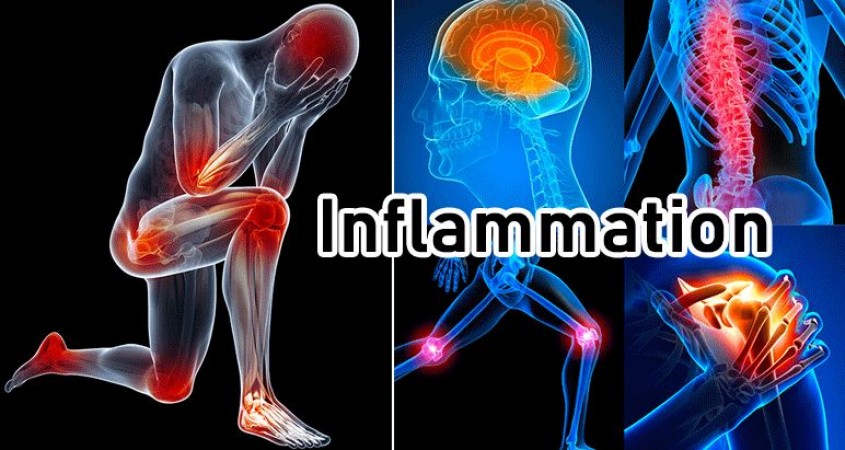
Inflammation serves as the body's natural response to various stimuli, acting as a defense mechanism and signaling the presence of an underlying issue. For some individuals, the consumption of certain foods triggers bodily responses such as redness, itching, or swelling, which may be indicative of chronic inflammation. This article aims to delve deeply into the intricate relationship between dietary habits and chronic inflammation, exploring how specific choices can impact our health and offering insights into effective management strategies.
1. Excessive Consumption of Processed Foods:
1.1 The Ultra-Processed Conundrum:
The modern diet often includes an overreliance on ultra-processed foods, characterized by high levels of additives, preservatives, and refined ingredients. Scientific studies consistently reveal that these foods disrupt the delicate balance of gut microbiota, playing a pivotal role in the initiation and perpetuation of chronic inflammation.
1.2 Disturbance in Gut Microbiota:
Understanding the gut microbiome's role in overall health is paramount. The disturbance caused by excessive processed food consumption can compromise the functionality of the gastrointestinal system, leading to a cascade of inflammatory responses throughout the body.
1.3 Implications for Digestive Health:
Unhealthy dietary patterns contribute to compromised digestion, impacting nutrient absorption and assimilation. This not only hampers the body's ability to derive essential nutrients from food but also exacerbates inflammation as undigested particles trigger immune responses.
2. High Intake of Added Sugar:
2.1 The Sugar Dilemma:
Sugar, a ubiquitous ingredient in our diets, presents a multifaceted challenge. While naturally occurring sugars in fruits and vegetables are integral to a balanced diet, the excessive consumption of added sugars, prevalent in processed foods and sugary beverages, has alarming health implications.
2.2 Cardiovascular Ramifications:
Studies consistently link high sugar intake to cardiovascular diseases, emphasizing the role of added sugars in elevating inflammation markers. The intricate interplay between sugar consumption, insulin resistance, and systemic inflammation underscores the need for dietary vigilance.
2.3 Unraveling the Diabetes Connection:
A diet rich in added sugars contributes significantly to the development of type 2 diabetes. The ensuing insulin resistance and heightened blood sugar levels not only perpetuate inflammation but also create a conducive environment for the progression of chronic inflammatory conditions.
3. Insufficient Intake of Vegetables and Fiber:
3.1 The Protective Role of Fiber:
Adequate consumption of fruits, vegetables, and whole grains provides essential fiber, a cornerstone in promoting gut health. Fiber acts as a prebiotic, nurturing beneficial gut bacteria and fostering an environment that mitigates inflammation.
3.2 Antioxidants and Anti-Inflammatory Properties:
The presence of antioxidants in fruits and vegetables equips the body with tools to combat oxidative stress, a key driver of inflammation. Scientific evidence consistently supports the anti-inflammatory properties of a diet rich in diverse plant-based foods.
3.3 A Holistic Approach to Inflammation:
Recent research, including the 2018 study published in the American Journal of Clinical Nutrition, emphasizes the importance of adopting a holistic dietary approach. Beyond individual nutrients, the synergistic effects of a varied and colorful plant-based diet offer comprehensive protection against chronic inflammation.
4. Gluten Sensitivity:
4.1 Unraveling the Complexities of Gluten:
Gluten, a protein found in wheat, barley, and rye, presents a conundrum for some individuals. While most people tolerate gluten without issues, those with gluten sensitivity experience inflammatory responses that extend beyond the gastrointestinal system.
4.2 Navigating Gluten-Related Inflammation:
The prevalence of gluten sensitivity requires heightened awareness. Individuals experiencing adverse reactions to gluten must adopt a gluten-free diet, not only to alleviate immediate symptoms but also to prevent the perpetuation of chronic inflammation and associated health risks.
5. Excessive Alcohol Consumption:
5.1 The Gut-Liver Axis:
Alcohol, when consumed in moderation, may not pose severe health risks. However, chronic and excessive alcohol consumption disrupts the delicate balance of the gut-liver axis, triggering inflammatory responses that reverberate throughout the body.
5.2 Inflammatory Consequences:
Daily or excessive alcohol intake leads to gut dysbiosis, contributing to inflammation and compromising the integrity of the intestinal barrier. The ensuing systemic inflammation increases susceptibility to various diseases, underscoring the importance of moderation in alcohol consumption.
In navigating the complex landscape of inflammation, understanding the intricate connections between dietary choices and bodily responses is crucial. From the disruptive impact of processed foods on gut health to the multifaceted challenges posed by added sugars, adopting a holistic approach to nutrition emerges as a cornerstone in inflammation management.
6.1 Dietary Solutions for Inflammation:
The integration of anti-inflammatory foods, including omega-3 fatty acids, turmeric, and green leafy vegetables, showcases the potential of dietary interventions in modulating inflammatory responses. Comprehensive dietary changes, guided by personalized nutritional plans, offer a promising avenue for individuals seeking to manage chronic inflammation effectively.
6.2 The Role of Professional Guidance:
While this exploration provides valuable insights, consulting with healthcare professionals, nutritionists, or dieticians is imperative for tailored advice. Personalized dietary recommendations, grounded in an individual's health status, preferences, and potential sensitivities, enhance the effectiveness of inflammation management strategies.
In summary, the journey towards mitigating chronic inflammation involves a nuanced understanding of the dietary factors at play, coupled with informed and intentional choices. As we unravel the intricacies of inflammation, the transformative power of a balanced and nourishing diet emerges as a beacon of hope for enhanced well-being and vitality.
Struggling with High Uric Acid? Steer Clear of These 8 Items Today
Refrain from These Habits Today, or Risk Falling Prey to Stubborn Obesity
It's High Time to Discover Hidden Wonders of Rosemary Oil: Hair Growth Elixir, and More